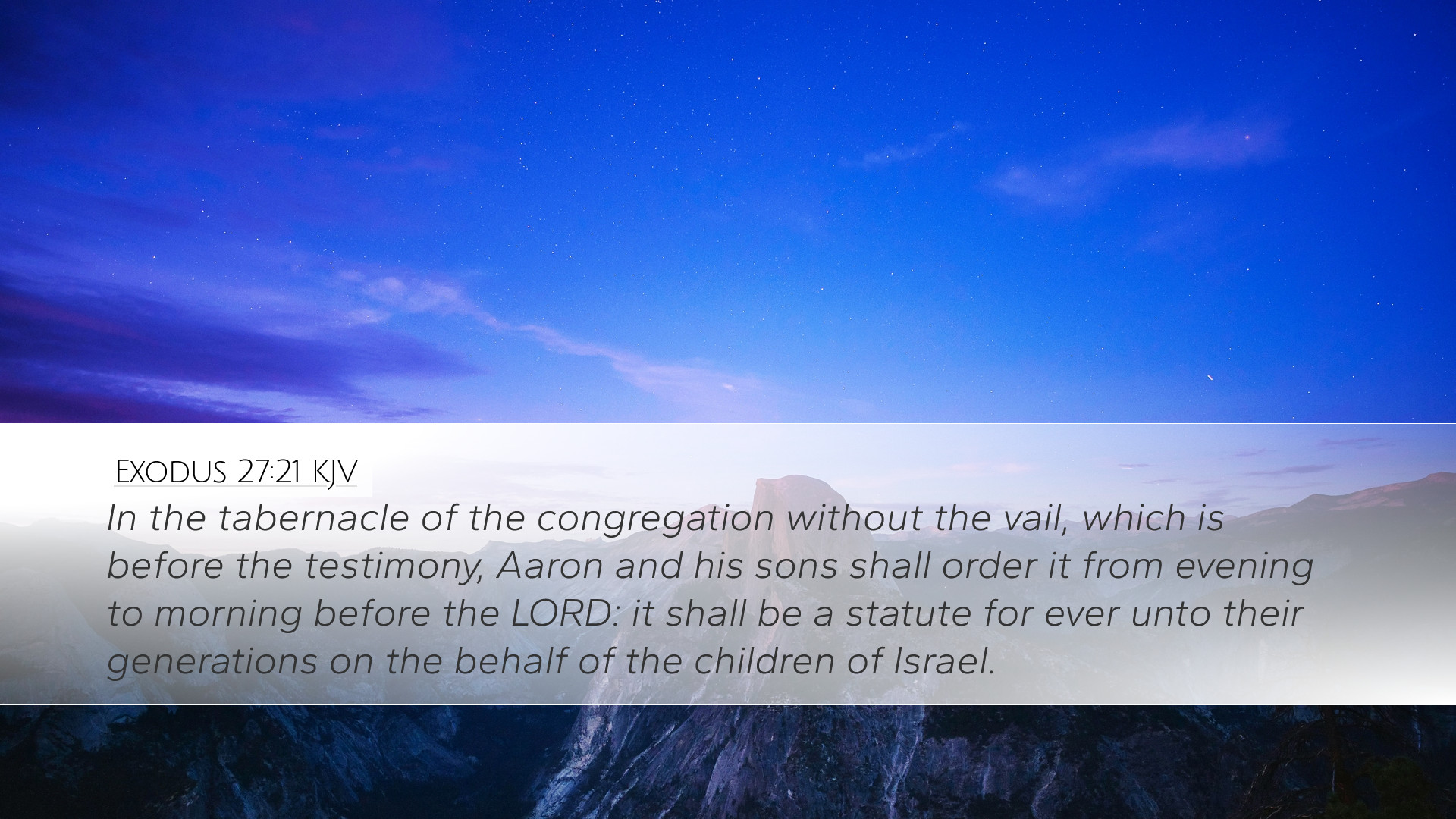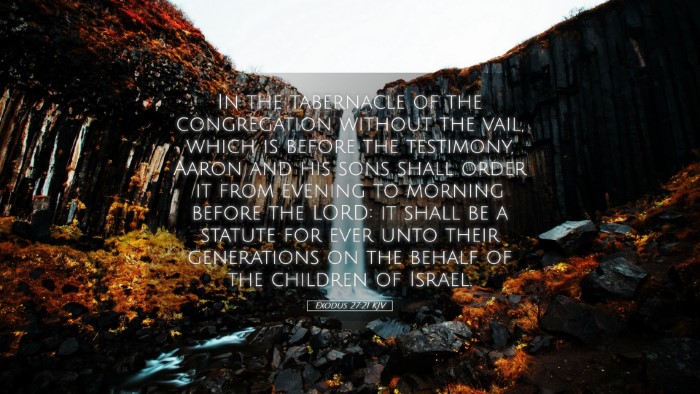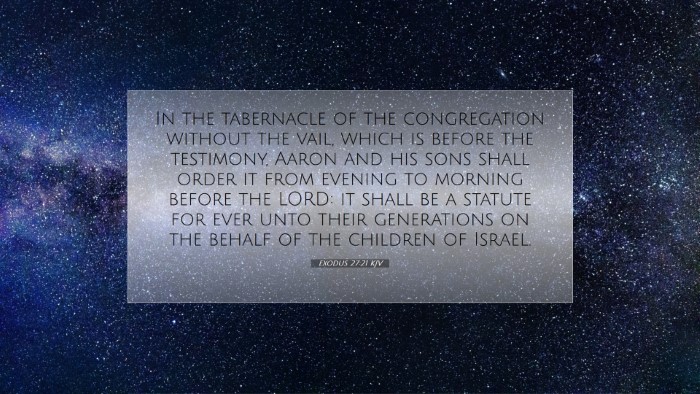Commentary on Exodus 27:21
Verse Reference: Exodus 27:21 - "In the tabernacle of the congregation without the vail, which is before the testimony, Aaron and his sons shall order it from evening to morning before the LORD: it shall be a statute forever unto their generations on the behalf of the children of Israel."
This verse highlights the importance of the Tabernacle worship and the perpetual duties assigned to Aaron and his sons, the priests, reflecting on their responsibilities in serving God and maintaining holiness among the people.
Theological Significance
Matthew Henry emphasizes the role of the Tabernacle of the congregation as a significant meeting place for God and His people. The presence of the Lord was promised to be with them in this sacred space. The evening to morning service signifies continuous worship and dedication. Henry suggests that this reinforces the concept of undivided attention and commitment to God, paralleling how modern believers should approach their spiritual lives.
Albert Barnes notes the importance of the perpetual light that was to be maintained by Aaron and his sons, symbolizing the constant presence of God in the life of Israel. The responsibility to tend to this sacred flame represents the unbroken link between God and His people, which should inspire modern believers to reflect on their own dedication to God in their worship and daily lives.
Adam Clarke describes the 'vail' mentioned in this verse as a barrier that separates the Holy Place from the Most Holy Place, where the ark of the covenant resides. This separation signifies the holiness of God and the necessity for a mediator, represented by the priestly duties of Aaron and his descendants. Clarke emphasizes the significance of the Tabernacle’s order and the priestly service as essential to maintaining the covenant relationship with God.
Observations on the Priestly Duties
- Divine Instruction: This instruction was not a suggestion but a command from God, highlighting the authority of divine law and the necessity for obedience among His people.
- Continuity of Worship: The phrase "forever unto their generations" indicates the importance of passing down this duty across generations, ensuring that the worship of God remains a central focus within the Israelite community.
- Role of the Priesthood: The responsibilities of Aaron and his sons symbolize the broader function of the priesthood as intercessors between God and humanity, a typology that is fulfilled in Christ according to New Testament theology.
Application for Modern Believers
Those studying this passage must consider how it applies to contemporary worship and ministry. The commitment required of Aaron and his sons serves as a model for church leaders today, reminding them of their sacred duty to guide and foster worship in their communities.
This scripture also calls upon all believers to recognize the need for continual presence with God. Just as the priests maintained the light through the night, Christians are invited to remain in prayer, worship, and scripture reading continually, allowing the light of Christ to shine in their lives.
The concept of a “statute forever” should encourage church leaders and congregations alike to reflect on the importance of maintaining the core tenets of faith across generations, fostering spiritual growth, and ensuring that the worship of God is preserved as a vital tradition.
Conclusion
Exodus 27:21 serves as a reminder of the seriousness of devotion to God, illustrating how the priests performed their duties with faithfulness and diligence, and how such diligence is expected of modern believers. The insights from Matthew Henry, Albert Barnes, and Adam Clarke provide a rich foundation for understanding the complexities of God's covenant with His people, urging both reverence and practical application within the church today.


